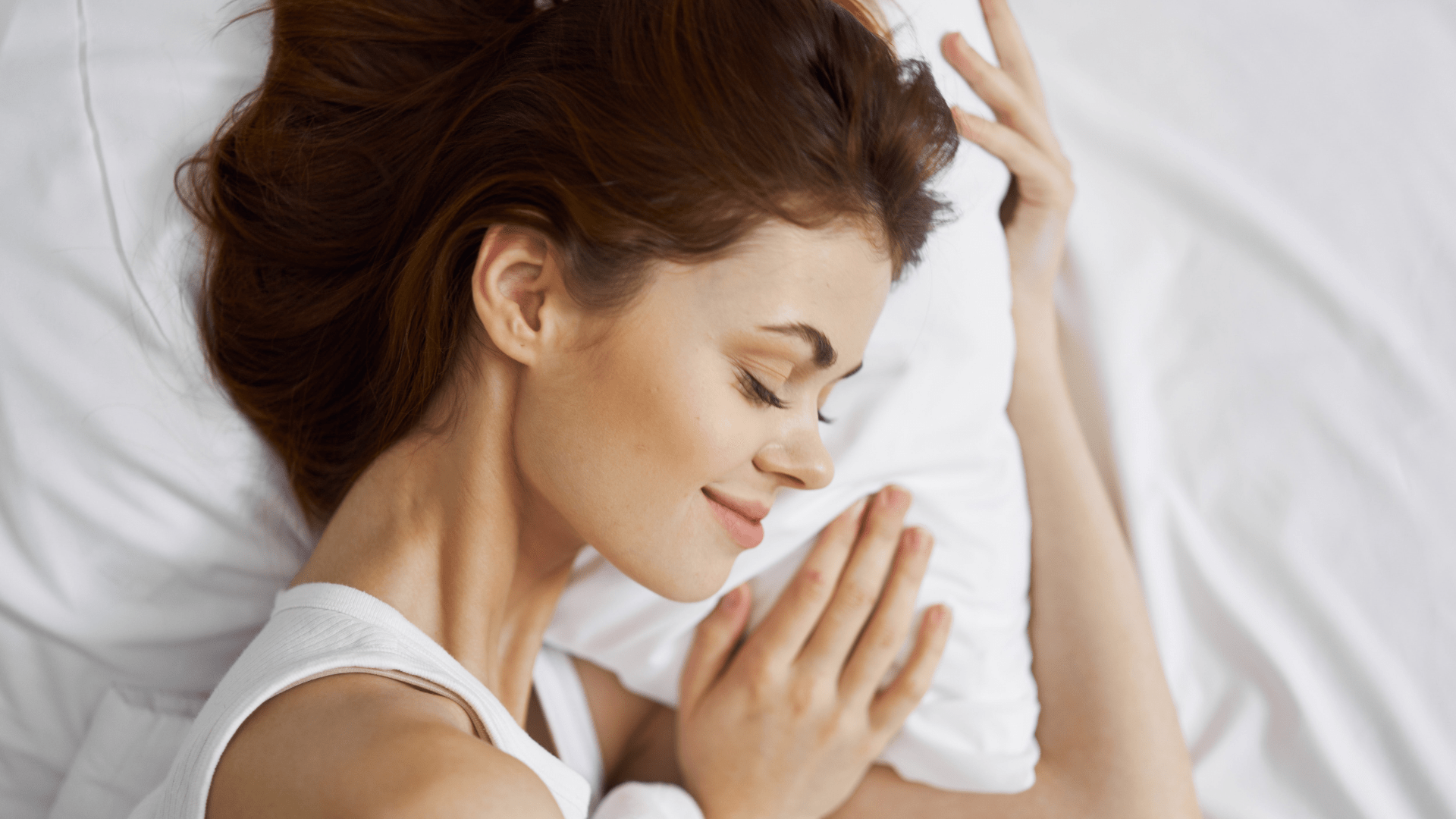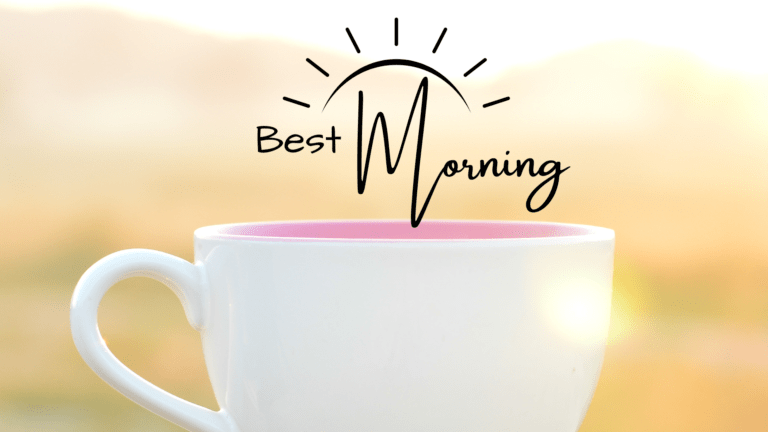Let’s debunk a common myth: Deep sleep doesn’t come from taking a pill or staying in bed longer. Most people think it’s a magical process that will happen if they lay still enough or pop the right over-the-counter sleep aid. But here’s the truth—deep sleep requires a combination of lifestyle changes, habits, and yes, sometimes a little help from remedies or sleep aids.
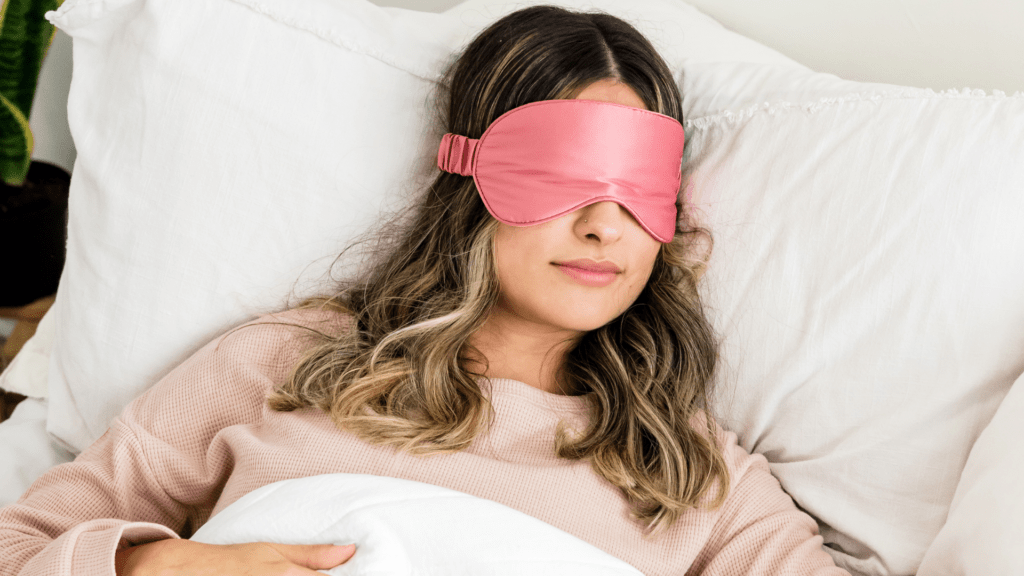
So, if you’ve been struggling with insomnia or finding it hard to stay asleep through the night, you’re not alone. One effective approach to improving your sleep quality is to focus on sleep hygiene. By establishing a consistent sleep schedule, keeping your bedroom cool and dark, and limiting screen time before bed, you can create an environment that promotes relaxation and helps you fall asleep naturally.
With a few simple improvements to your sleep hygiene and 26 effective home remedies for insomnia, getting that much-needed deep sleep without relying on medication becomes more achievable.
26 Effective Home Remedies for Insomnia
Finding natural solutions to insomnia can change the way you sleep. Instead of relying solely on over-the-counter sleep medications or sleeping pills, why not try some time-tested home remedies for sleep? These remedies can help you discover how to take deep sleep naturally, making falling and staying asleep much easier.
Natural Remedies to Fall Asleep Quickly
Are you struggling to fall asleep quickly? Try natural remedies like herbal teas, calming essential oils, and a consistent bedtime routine. These methods can also teach you how to take deep sleep more effectively, helping to ease your mind and body into a restful slumber.
Chamomile Tea
Chamomile tea has been a go-to remedy for sleep for centuries. Its mild sedative effects help relax your mind and body, allowing you to sleep naturally. Plus, it’s caffeine-free, perfect for those struggling with sleeplessness.
Lavender Aromatherapy
Lavender essential oil is known for its calming properties. A few drops on your pillow or using a diffuser in your room can help you relax and fall asleep quickly.
Valerian Root
This natural herb has been widely used as a sleep aid. It’s especially beneficial for those suffering from insomnia relief naturally. Valerian root can help you fall asleep faster and improve the quality of your sleep.
Magnesium Supplements
Magnesium plays a key role in regulating sleep patterns. Taking a magnesium supplement before bed can help calm the nervous system and promote deep sleep. This is an excellent option for those seeking natural ways to fall asleep.

Tart Cherry Juice
Tart Cherry juice is rich in melatonin, the hormone responsible for regulating sleep-wake cycles. Drinking a small glass before bed can support better sleep by boosting melatonin levels naturally.
Bananas
Bananas are packed with magnesium and potassium, two minerals that relax your muscles and help you sleep better. They’re a great home remedy for sleeplessness and are perfect as a light snack before bed.
Warm Milk with Honey
This classic remedy is not just an old wives’ tale. Warm milk contains tryptophan, which can naturally induce sleep, while honey promotes the release of melatonin.
Meditation and Deep Breathing
Practicing meditation or deep breathing exercises before bed can help you quiet your mind and prepare your body for sleep. This is a great way to unwind and sleep better at night naturally without needing pills.
Melatonin Supplements
Melatonin is a popular non-prescription sleep aid. For those struggling to regulate their sleep cycle, taking a melatonin supplement can help, but be cautious of relying too heavily on it.
Passionflower Tea
Passionflower herbal tea has been found to reduce anxiety and promote better sleep. Drinking a cup before bed can help you sleep more soundly and fall asleep naturally.
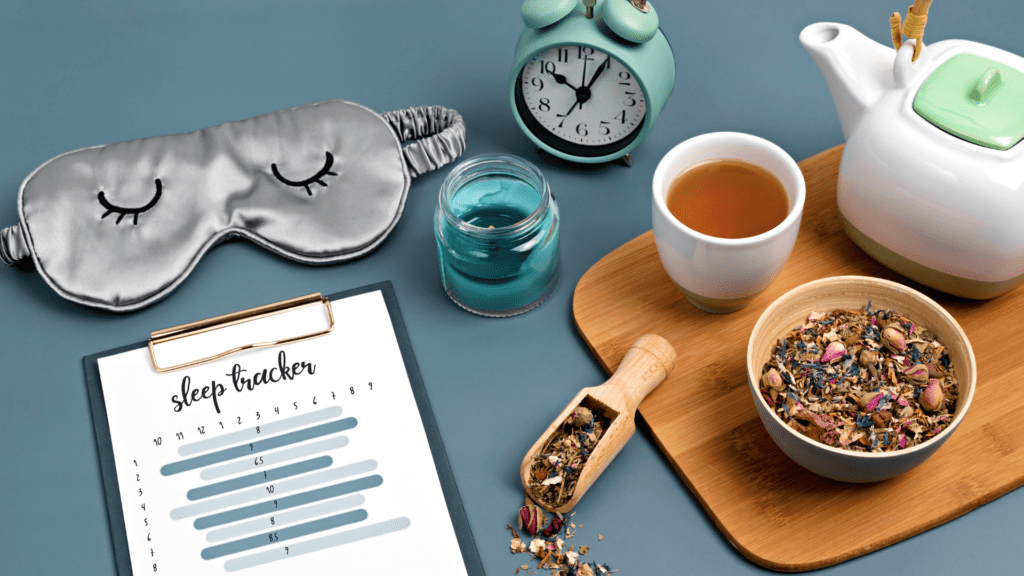
Epsom Salt Bath
A warm bath with Epsom salts can work wonders for your sleep. The magnesium in the salts helps relax your muscles, easing you into a restful night’s sleep.
Jasmine Essential Oil
Similar to lavender, jasmine oil has calming properties that help reduce stress and anxiety. Using jasmine oil in your bedtime routine can help you sleep through the night.
Almonds
Almonds are rich in magnesium, making them a great snack to help you relax before bed. A handful of almonds can be just what you need to unwind.
CBD Oil
CBD oil is gaining popularity as a natural remedy for insomnia and trouble sleeping. It helps relax the body and calm the mind without the psychoactive effects of THC.
Peppermint Tea
Peppermint tea is known for its soothing effects on the digestive system, which can sometimes be the cause of sleeplessness. This home remedy for sleep also helps calm your body and prepare it for rest.
Oatmeal
Oats are rich in melatonin, making them a perfect late-night snack. Eating a small bowl of oatmeal can support better sleep without overloading your stomach.
Kava Root
Kava root is known for its relaxing effects, which can help ease anxiety and promote a peaceful sleep. It’s another natural way to tackle insomnia relief.
Glycine Supplements
Glycine is an amino acid that can lower body temperature, signaling your body that it’s time to sleep. Taking glycine before bed can improve sleep quality.
Lemon Balm Tea
This calming herb can help ease anxiety and stress, making it easier for you to fall asleep naturally. Try adding lemon balm tea to your nighttime routine for a good night’s sleep.
Essential Oils Massage
Using essential oils like chamomile, sandalwood, or ylang-ylang during a bedtime massage can help relax your body and mind, making it easier to fall asleep and stay asleep.
Sunlight Exposure
Getting natural sunlight during the day helps regulate your circadian rhythm, which can make falling asleep at night much easier.
Avoiding Caffeine in the Afternoon
Cutting off caffeine after lunch is essential for a good night’s sleep. Caffeine can stay in your system for hours, so it’s important to avoid it if you want to sleep better at night.
White Noise Machine
A white noise machine can help drown out background noises that might wake you up at night, helping you stay asleep longer.
Switching Off Electronics
Turn off your electronics at least an hour before bed. The blue light from screens can interfere with your body’s production of melatonin, making it harder to fall asleep quickly.
Progressive Muscle Relaxation
This relaxation technique involves tensing and then relaxing each muscle group in your body. It can help ease physical tension and promote deep sleep.
Foot Reflexology
Massaging pressure points on your feet, especially the ones associated with sleep, can trigger relaxation and help you fall asleep naturally.
Three Improvements to Make for Better Sleep
One common misconception about better sleep is that it requires drastic changes or expensive solutions. Many believe that achieving a good night’s sleep means buying pricey mattresses, taking prescription sleep aids, or even using high-tech gadgets. While these things can help, they’re not always necessary. In reality, small improvements in your daily routine can have a big impact on how well you sleep. You don’t need fancy tools or the strongest sleep aid over the counter—you just need to focus on three simple improvements that can naturally promote better sleep.
Adjusting Your Sleep Environment
Your sleep environment plays a crucial role in how well you sleep. If you’re constantly tossing and turning, waking up multiple times a night, or finding it hard to fall asleep, it might be time to reassess your surroundings.
Keep Your Room Cool and Dark
A cool, dark room signals to your body that it’s time to sleep. Lowering your thermostat to around 65 degrees Fahrenheit is ideal for deep sleep. Additionally, blocking out any light using blackout curtains or a sleep mask can prevent interruptions and help you stay asleep.
Invest in Comfortable Bedding
Good quality pillows, a supportive mattress, and soft, breathable bedding can make all the difference. You don’t have to spend a fortune—just make sure your bed supports your body and helps you get better sleep. This simple improvement will transform your bedroom into a haven for restful sleep.
Limit Noise
Whether it’s city traffic, noisy neighbors, or just household sounds, noise can seriously disrupt your sleep. Consider using a white noise machine or earplugs to create a more peaceful environment. This can help you sleep through the night without waking up to every small sound.
Improving Your Sleep Hygiene
Sleep hygiene refers to your daily habits that influence how well you sleep at night. Small changes to these habits can drastically improve your sleep quality.
Stick to a Consistent Sleep Schedule
Going to bed and waking up at the same time every day helps regulate your body’s internal clock. It’s one of the most effective ways to sleep better and ensure you get into a routine of deep sleep.
Create a Relaxing Bedtime Routine
An hour before bed, start winding down. Turn off electronics, read a book, meditate, or take a warm bath. Creating a relaxing routine signals to your body that it’s time to sleep. This is a natural way to fall asleep faster without needing a non-melatonin sleep aid or the best over-the-counter sleep medicine.
Limit Caffeine and Alcohol
Caffeine can stay in your system for hours, making it harder to fall asleep, even if you drink it in the afternoon. Similarly, while alcohol might make you feel drowsy, it can disrupt deep sleep later in the night. Limiting both can improve your ability to fall asleep quickly and ensure you sleep better at night naturally.
Exercise Regularly
Physical activity during the day can help you sleep better at night. Just make sure not to exercise too close to bedtime, as it can have the opposite effect and keep you awake.
Practicing Mindfulness and Relaxation Techniques
If you’re having trouble falling asleep or staying asleep, mindfulness and relaxation techniques can be incredibly effective. These methods help calm your mind, reduce stress, and promote better sleep.
Deep Breathing Exercises
Deep breathing techniques, such as the 4-7-8 method, can help you relax and slow your heart rate, making it easier to fall asleep. This method is especially useful if you tend to feel anxious at bedtime.
Progressive Muscle Relaxation
Progressive muscle relaxation involves tensing and then relaxing each muscle group in your body. This helps release physical tension, which can improve sleep quality and allow you to stay asleep longer.
Guided Meditation
Using guided meditation apps or videos can help you enter a calm state, making it easier to drift off into sleep. These practices are especially beneficial for those looking for natural ways to fall asleep without relying on over-the-counter sleep aids.
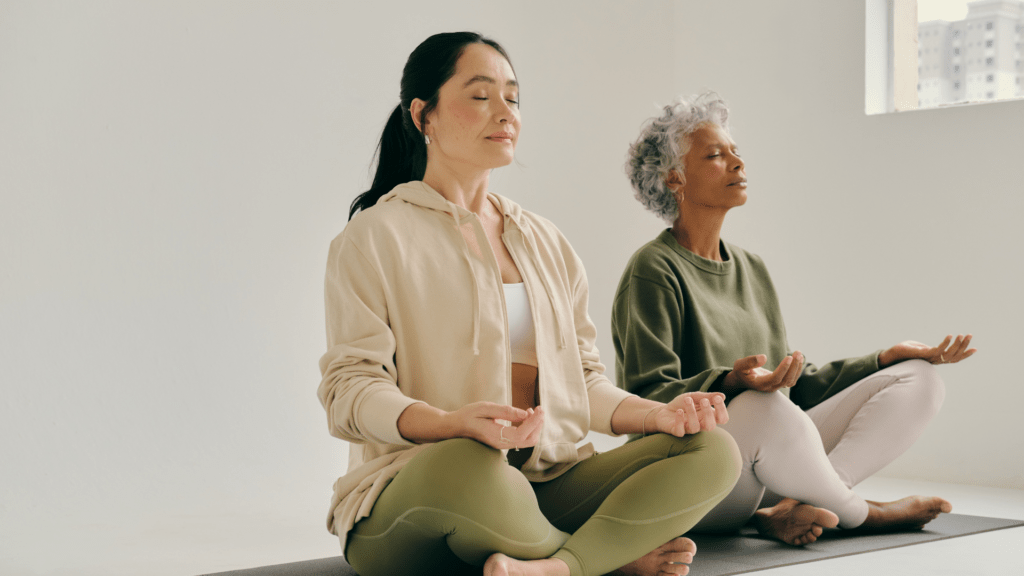
When to Consider Non-Prescription Sleep Aids
Despite making lifestyle changes, some people still find it challenging to get a good night’s sleep. If you’ve already improved your sleep environment, practiced good sleep hygiene, and incorporated mindfulness techniques, but you’re still struggling, it might be time to consider a non-prescription sleep aid.
The Best Over-the-Counter Sleep Aids
If you’re hesitant about taking prescription medications but feel like you need an extra push to fall asleep, there are many effective over-the-counter sleep aids available. The key is finding one that works for you without creating dependency or long-term side effects.
Melatonin Supplements
Melatonin is a naturally occurring hormone that helps regulate your sleep cycle. Taking a melatonin supplement can be especially useful for those who have trouble falling asleep or are dealing with jet lag. It’s one of the most popular no-melatonin sleep aids available and a great alternative for people seeking natural ways to fall asleep.
Antihistamines
Some sleep aids contain antihistamines like diphenhydramine, which are effective for insomnia relief. These ingredients can make you feel drowsy and help you fall asleep quickly, but they’re best used only on occasion, as they can cause grogginess the next day.
Herbal Sleep Aids
If you’re looking for a more natural approach, herbal remedies like valerian root, chamomile, and passionflower are often included in over-the-counter sleep aids. These herbs help calm the mind and body, making it easier to fall asleep naturally. They’re also great options if you want to avoid the side effects of stronger medications.
CBD Products
CBD has been gaining popularity as a non-melatonin sleep aid. It’s known for its calming effects and is an excellent option for people seeking insomnia relief naturally. It won’t get you high like THC, but it can help reduce anxiety and promote a sense of relaxation, leading to better sleep.
Choosing the Right Sleep Aid
With so many options available, it can be tough to choose the right sleep aid. Here are a few tips to help you decide:
Understand the Cause of Your Insomnia
Before choosing a sleep aid, try to pinpoint what’s causing your insomnia. Is it anxiety, stress, or an irregular sleep schedule? This will help you select the most effective remedy for your specific needs.
Start with Natural Options
If you’re hesitant about taking medication, start with natural ways to fall asleep, such as valerian root or melatonin supplements. These are gentler on the body and often have fewer side effects than pharmaceutical sleep aids.
Read the Labels Carefully
Always read the labels of any over-the-counter sleep aid you’re considering. Make sure you’re aware of the active ingredients and potential side effects.
Don’t Overdo It
Using sleep aids occasionally is fine, but relying on them every night can lead to dependency. Focus on lifestyle changes first and use sleep aids as a backup when needed.
Exploring Alternatives to Traditional Sleeping Pills
Many people believe that the only solution to a good night’s sleep is to take traditional sleeping pills. You might even think that without prescription medications or the best over-the-counter sleep aid, it’s impossible to improve your sleep quality. But that’s not true. While sleeping pills have their place, especially for severe insomnia, there are plenty of alternatives that can help you fall asleep without the potential side effects or dependency that medications can bring.
Melatonin Alternatives and Herbal Remedies
If you’re looking for natural ways to fall asleep or something that’s less likely to disrupt your body’s natural rhythm, there are several melatonin alternatives and herbal sleep aids that are worth considering.
Valerian Root
Valerian root is one of the most popular natural remedies for sleeplessness. It’s been used for centuries to help with insomnia, anxiety, and stress. Unlike traditional sleeping pills, valerian root helps you relax and ease into sleep without making you feel groggy in the morning.
Chamomile Tea
Chamomile is another well-known herbal remedy for sleep. Drinking a cup of chamomile tea before bed can calm your mind and body, making it easier to fall asleep naturally. Plus, it’s caffeine-free, so it won’t interfere with your sleep cycle like other teas might.
Lavender
Lavender, often used in essential oils or as a scent for pillows, has been shown to have a calming effect. It’s a great option if you want a natural sleep aid that’s not in pill form. You can also try using lavender oil in a diffuser or a sleep spray to promote relaxation.
Magnesium
Magnesium is a mineral that plays a key role in relaxation and sleep. Low magnesium levels can lead to sleep problems like insomnia, so taking a magnesium supplement can help you sleep better. It’s one of the top melatonin alternatives that many people find effective for promoting deep sleep.
Cognitive Behavioral Therapy for Insomnia (CBT-I)
CBT-I is a non-medication treatment that focuses on changing the thoughts and behaviors that interfere with sleep. While many people default to medication, CBT-I is often considered more effective for long-term insomnia relief because it tackles the root cause of sleep issues rather than just masking the symptoms.
Changing Sleep Habits
CBT-I helps you create better sleep habits, such as avoiding naps during the day or limiting screen time before bed. These behavioral changes can have a big impact on your ability to sleep better at night naturally.
Addressing Sleep Anxiety
A lot of people suffer from sleep anxiety, which makes it harder to fall asleep. CBT-I teaches you how to manage these thoughts so that you can relax and fall asleep more easily. It’s particularly helpful for those who lie awake at night worrying about their inability to sleep.
Sleep Restriction Therapy
This method, used within CBT-I, involves limiting the amount of time you spend in bed awake. It’s designed to help you associate your bed with sleep rather than frustration and restlessness, which can make it easier to fall asleep quickly over time.
Lifestyle Changes for Better Sleep
For some people, simple lifestyle changes can be just as effective as sleep aids when it comes to improving sleep quality. Here are a few additional tips to help you sleep better at night without relying on sleeping pills.
Exercise Regularly
Regular physical activity is a great way to promote good sleep. Just be sure to exercise earlier in the day, as working out too close to bedtime can keep you awake.
Mindfulness and Relaxation Techniques
Incorporating practices like meditation, deep breathing, or yoga into your daily routine can help reduce stress and prepare your mind for sleep. These techniques are not only great natural remedies for sleep, but they also promote overall well-being.
Healthy Eating Habits
Your diet plays a significant role in how well you sleep. Avoid heavy meals, caffeine, and alcohol close to bedtime to give yourself the best chance of falling asleep quickly and staying asleep through the night.
The Most Effective Over-the-Counter Sleeping Medications
When all else fails, and you’ve exhausted home remedies for insomnia, natural sleep aids, and lifestyle changes, sometimes the right over-the-counter sleeping medication can help you get a better night’s rest. But it’s important to choose the right one for your needs, as not all sleeping pills are created equal.
Top Over-the-Counter Sleep Aids
There are several over-the-counter sleep aids available that can help you fall asleep quickly and stay asleep throughout the night. Here are some of the most effective options:
Diphenhydramine
Diphenhydramine is an antihistamine commonly found in sleep aids like Benadryl and Unisom. It works by blocking the body’s response to histamine, which makes you feel drowsy. It’s one of the most effective over-the-counter sleep aids, but it can leave you feeling groggy in the morning, so it’s best used occasionally.
Doxylamine
Doxylamine is another antihistamine used as a sleep aid, often found in medications like Nyquil. It’s known for its sedative properties and is considered one of the strongest sleep aids over the counter. Like diphenhydramine, it’s effective but can cause next-day drowsiness.
Valerian and Hops Supplements
Some over-the-counter sleep aids combine valerian root with hops for a more natural option. These supplements help promote relaxation and better sleep without the grogginess that can come with antihistamines. They’re a great choice for people seeking natural ways to fall asleep.
Melatonin-Based Sleep Aids
Melatonin supplements are one of the most popular over-the-counter sleep medications. They work by regulating your sleep-wake cycle, making them ideal for people with jet lag or those who have trouble falling asleep at night. Melatonin is also one of the safest options and has fewer side effects compared to other sleep aids.
Choosing the Right Over-the-Counter Sleep Aid
Selecting the right over-the-counter sleep medicine depends on your personal needs and what’s causing your sleep issues. Here’s how to decide which sleep aid might be best for you:
Short-Term vs. Long-Term Use
If your sleep problems are temporary, such as jet lag or an occasional bout of insomnia, a stronger over-the-counter sleep aid like diphenhydramine or doxylamine may work well. However, if you’re looking for something to use regularly, you might want to opt for something more natural, like a melatonin supplement or valerian root.
Consider Side Effects
Some over-the-counter sleeping medications can leave you feeling drowsy the next day. If you have important tasks or work the next morning, opt for something lighter, like a melatonin-based sleep aid, which is less likely to cause grogginess.
Know When to See a doctor
If you’ve tried various sleep aids and home remedies for insomnia without success, it might be time to consult a healthcare provider. Chronic insomnia can be a sign of underlying health issues that may require more specialized treatment.
